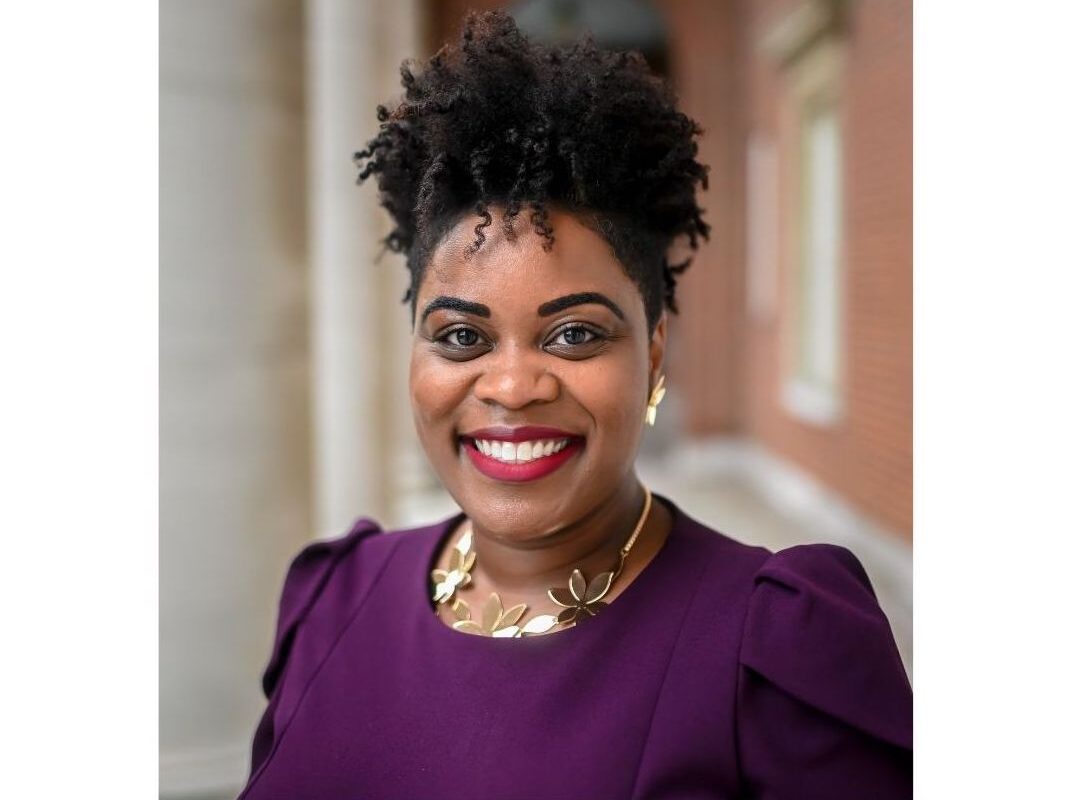Christy Erving’s interest in how race and health intersect began in an undergraduate class she took at Rice University. “It was a medical sociology class,” said Erving. “That was the first time I was exposed to research concerning the health of Black Americans and how the social environment and past historical injustices have impacted their current health. It left a deep impression on me, and not only did I decide to become a sociology major, I decided to go to grad school and study social and environmental determinants of health for my career.”
Now, as an associate professor of sociology at UT Austin, Erving does exactly that. But though she’s taught about the sociology of health in general for several years, it was the realities of life during COVID that steered her to design her new course, “Black Health Matters,” specifically focused on the health of Black Americans. It debuts this fall.
The course will provide an interdisciplinary lens through which to understand health and healthcare challenges experienced by Black Americans, drawing from the disciplines of history, sociology, psychology, and public health. A UGS Signature Course, it is designed to be small, seminar-style class that offers first-year students the opportunity to interact closely with a faculty member and their peers. The goal is to provide an intimate space to have complex discussions on tough topics.
“We remain in a pandemic,” she says. “Many of the health disparities that existed prior to COVID-19 are now coming to the forefront because of the pandemic. We’re also in what some would call a racial pandemic, where many racial injustices are receiving appropriate and due attention in the public media. The rise of the Black Lives Matter movement has also brought attention to some of those injustices.”
To understand and address problems of racism as they relate to health, and how perceptions of race affect healthcare, Erving will start with some big questions. In week one of the class, she will address the question: “What is race?” While the answer may seem obvious to some, Erving explains that it’s a necessary conversation and a great starting point for the class. “Historically we have understood race as biological,” she says, “but I want to dispel that myth very quickly and clarify that race has nothing to do with biology or genetics, but is a historically and socially constructed concept used to understand cultural variation across different groups.”
But just because race is a construct doesn’t mean that it doesn’t have huge consequences for real life, Erving says. What we perceive of as real has social consequences; this is a foundational point of social psychology, and one that she believes students need to understand in order to see how social and environmental factors influence the health of Black Americans.
As the semester progresses, students in “Black Health Matters” will also learn about environmental injustices as determinants of health. They’ll do so by studying examples such as what happened in New Orleans after Hurricane Katrina, which disproportionately affected marginalized communities, particularly poor Black people.
A linked topic that will be addressed in the course is mental health.“I like to get students thinking about health more holistically, both the mind and the body,” says Erving, whose own research explores topics that affect psychological health, like stress exposure, resilience, and coping. “We incorporate this because we know that in many Black communities, mental health is considered a taboo topic, so it’s important to emphasize it as a part of health more broadly.”
Because she teaches health-related courses, Erving often gets pre-med students in her classes, or students generally interested in the health professions. She loves capturing these students, whose education and training tends to be so focused on anatomy, physiology, and the bodily systems. “This is critical, of course — we need our medical professionals to know about that — but we also need them to learn in a meaningful way about how the patient’s cultural context matters in terms of the doctor/medical professional-patient relationship,” says Erving. “Black Health Matters” will offer this more social, context-based understanding of the world that medical students will enter.
The class will also be useful for any student interested in understanding inequality and injustice and how they operate. “I love when non-social-science majors take my classes because it introduces many of them to a new way of thinking,” says Erving.
Erving isn’t worried about getting students to engage on these topics. The course will touch on events that are front-and-center in the news, and many students come to the course with a solid understanding of current events. “How could they not? We are in a pandemic, and they are experiencing college very differently. BLM is all over the media, as well as environmental crises like the Flint, Michigan and Jackson, Mississippi water crises.”
And while much of the course will focus on injustices, the narrative of “Black Health Matters” also has an optimistic side. Erving will have her students do group presentations on organizations that work in health and the Black community, such as Therapy for Black Girls, a podcast tailored to the experiences of Black women and girls. “We are starting to see change in Black communities because of organizations like this,” notes Erving. “Students will get a taste for the counter-movements working to destigmatize issues surrounding mental health. They will learn about the many communities who have found ways to thrive in spite of inequality, who have overcome and made lives for themselves. It’s really a class about resilience and visibility as well as triumph against marginalization.”
